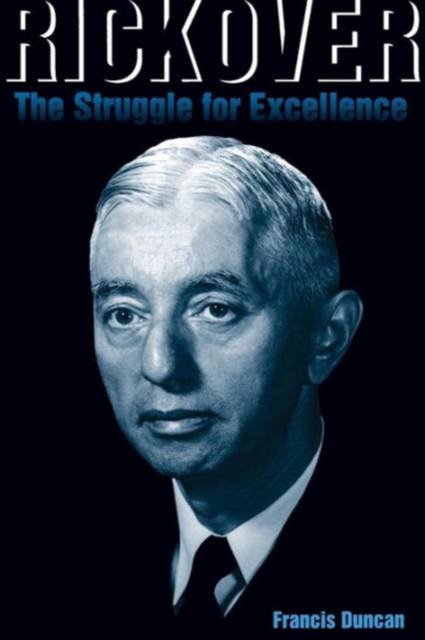
- Retrait gratuit dans votre magasin Club
- 7.000.000 titres dans notre catalogue
- Payer en toute sécurité
- Toujours un magasin près de chez vous
- Retrait gratuit dans votre magasin Club
- 7.000.0000 titres dans notre catalogue
- Payer en toute sécurité
- Toujours un magasin près de chez vous
Description
As the father of the nuclear powered Navy, Adm. Hyman G. Rickover was a pivotal figure in twentieth-century American history. While many books have been written about various aspects of his career, this is the first biography to have access to private papers, family and close friends. It not only deals with the admiral's controversial naval career but with phases of his personal life that made him what he was, including his youth as a Jewish immigrant who embraced America and the opportunities it offered. The author, Francis Duncan, worked with Rickover from 1969, when he was assigned to write a history of the nuclear propulsion program, until the admiral's death in 1986. Shortly before he died, Rickover turned over his files to Duncan, including letters to his first wife that give a vivid picture of the Navy from 1929 to 1945. Rickover's second wife allowed Duncan access to letters covering important events later in his career. The author was also granted interviews with the admiral's son and sister and with individuals from the Naval Reactors, an organization headed by Rickover whose members mostly had refused to talk to other biographers. A witness to the admiral's daily activities and the programs he directed, Duncan also drew on his own considerable knowledge to present a portrait of the man that gives new insights into Rickover's genius and short-comings. The book does not go into technical detail but focuses on the admiral's fights to build and extend the nuclear fleet and the often-difficult relationships that developed in the pursuit of the goal. He shows that Rickover's efforts had a profound effect on the postwar world, that the excellence and responsibility he demanded are qualities that reach beyond the Navy, and that his influence continues to be felt today.
Spécifications
Parties prenantes
- Auteur(s) :
- Editeur:
Contenu
- Nombre de pages :
- 416
- Langue:
- Anglais
Caractéristiques
- EAN:
- 9781591142218
- Date de parution :
- 20-10-11
- Format:
- Livre broché
- Format numérique:
- Trade paperback (VS)
- Dimensions :
- 155 mm x 224 mm
- Poids :
- 566 g

Les avis
Nous publions uniquement les avis qui respectent les conditions requises. Consultez nos conditions pour les avis.






